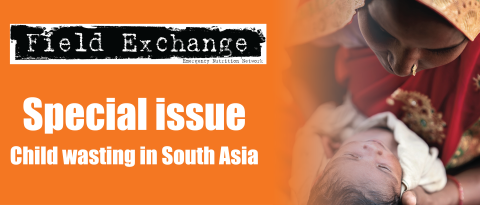Wasting in South Asia: Building the evidence on policy and programme response
A one-day consultation organised by United Nations Children’s Fund (UNICEF) was held in New York in 2018 to examine the evidence and guide the direction of future collaborative efforts on child wasting in South Asia. The consultation was attended by 32 individuals, including members of the Council of Research and Technical Advice on Acute Malnutrition (CORTASAM), researchers and academics. Participants identified unique characteristics of child wasting in South Asia that need closer examination, including high wasting prevalence at birth and in the early months of life, lower associated mortality with wasting, persistent wasting, and lower and slower response to treatment. Proposed adaptions of India’s national guidelines were seen as an opportunity for learning around the sustainability and cost-effectiveness of alternative models of care for severely wasted children. Participants identified the need for research to inform a greater range of treatment options tailored to the region with potential for greater coverage, quality and sustainability of care and treatment of severe wasting. Areas of research identified include identifying effective approaches to prevent and manage wasting in the under-six months age group; modifications to the use of ready-to-use therapeutic food (RUTF); use of home-based foods and home-augmented foods to treat severe wasting; and transitioning from treatment foods to family diets. Follow-up actions included formation of a sub-working group of CORTASAM on wasting in South Asia (profiled in this edition of Field Exchange) and production of this special edition of Field Exchange on child wasting in South Asia.
Read more about this consultation in a news article in Field Exchange issue 59, available online at www.ennonline.net/fex/59/wastinginsouthasia


